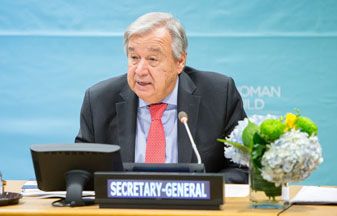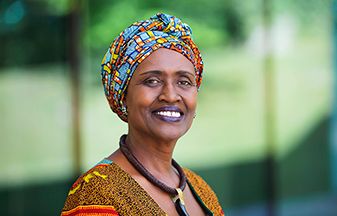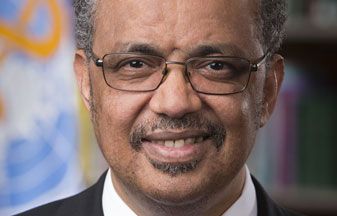
Equalize - World AIDS Day 2022
The inequalities which perpetuate the AIDS pandemic are not inevitable; we can tackle them. This World AIDS Day, 1 December, UNAIDS is urging each of us to address the inequalities which are holding back progress in ending AIDS.
The “Equalize” slogan is a call to action. It is a prompt for all of us to work for the proven practical actions needed to address inequalities and help end AIDS. These include:
- Increase availability, quality and suitability of services, for HIV treatment, testing and prevention, so that everyone is well-served.
- Reform laws, policies and practices to tackle the stigma and exclusion faced by people living with HIV and by key and marginalised populations, so that everyone is shown respect and is welcomed.
- Ensure the sharing of technology to enable equal access to the best HIV science, between communities and between the Global South and North.
- Communities will be able to make use of and adapt the “Equalize” message to highlight the particular inequalities they face and to press for the actions needed to address them.
Data from UNAIDS on the global HIV response reveals that during the last two years of COVID-19 and other global crises, progress against the HIV pandemic has faltered, resources have shrunk, and millions of lives are at risk as a result.
Four decades into the HIV response, inequalities still persist for the most basic services like testing, treatment, and condoms, and even more so for new technologies.
Young women in Africa remain disproportionately affected by HIV, while coverage of dedicated programmes for them remains too low. In 19 high-burden countries in Africa, dedicated combination prevention programmes for adolescent girls and young women are operating in only 40% of the high HIV incidence locations.
Only a third of people in key populations— including gay men and other men who have sex with men, transgender people, people who use drugs, sex workers, and prisoners—have regular prevention access. Key populations face major legal barriers including criminalisation, discrimination and stigma.
We have only eight years left before the 2030 goal of ending AIDS as a global health threat. Economic, social, cultural and legal inequalities must be addressed as a matter of urgency. In a pandemic, inequalities exacerbate the dangers for everyone. Indeed, the end of AIDS can only be achieved if we tackle the inequalities which drive it. World leaders need to act with bold and accountable leadership. And all of us, everywhere, must do all we can to help tackle inequalities too.
Activities will build up to World AIDS Day from November. The World AIDS Day report will be released in late November.
On World AIDS Day on 1st December, events will take place across the world. These activities will be led not only by official bodies but also, most importantly, by communities. Through photos and videos shared by groups on social media and aggregated by UNAIDS, people will be able to have a sense of the kaleidoscope of events taking place and be inspired by the determination and hope.
“We can end AIDS – if we end the inequalities which perpetuate it. This World AIDS Day we need everyone to get involved in sharing the message that we will all benefit when we tackle inequalities,” says UNAIDS Executive Director Winnie Byanyima. “To keep everyone safe, to protect everyone’s health, we need to Equalize.”
Adaptable materials for World AIDS Day will be shared on the UNAIDS special World AIDS Day page, beginning in November.
Inequalities are blocking the end of the AIDS pandemic, say UN
DAR ES SALAAM / GENEVA, 29 November 2022—Analysis by the UN ahead of World AIDS Day reveals that inequalities are obstructing the end of AIDS. On current trends the world will not meet agreed global targets on AIDS. But the new UNAIDS report, Dangerous Inequalities, shows that urgent action to tackle inequalities can get the AIDS response on track.





